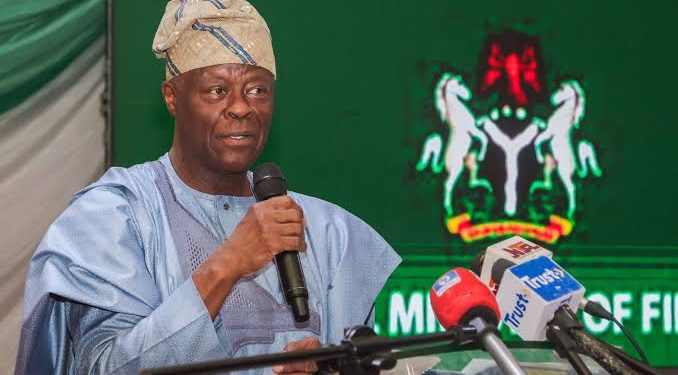Nigeria’s Coordinating Minister of the Economy and Minister of Finance, Wale Edun, has challenged the leadership of the Federal Ministry of Finance to spearhead reforms that will boost Nigeria’s annual economic growth to 7%. Edun issued the call during the opening session of the 2025 Ministerial Performance Management Retreat in Yola, Adamawa State.
Held at the Banquet Hall of the Government House, the two-day retreat was themed “Strengthening Performance Management for Fiscal Stability.” It brought together directors from across the ministry and relevant stakeholders to evaluate progress on economic policy and enhance the ministry’s capacity to deliver on key fiscal mandates.
In a statement released by the Ministry’s Director of Information and Public Relations, Mohammed Manga, Edun emphasized that Nigeria’s current pace of economic growth is not fast enough to tackle poverty and drive long-term prosperity. “The expectations of government and Nigerians are higher than ever,” he told the directors. “You are the engine room of policy execution. The performance of this Ministry is, to a large extent, a reflection of your effectiveness.”
Edun’s remarks follow his earlier position that Nigeria must aim for consistent GDP growth of 7% or more to meaningfully improve living standards. The country is currently growing at an average rate of 3.4%, a figure he described as inadequate for lifting millions out of poverty.
He reiterated that strong performance management within public institutions is critical to reaching this goal. According to him, key areas that require targeted reforms include increasing agricultural productivity, expanding digital infrastructure, supporting youth entrepreneurship through e-commerce, and broadening access to finance for businesses of all sizes.
The Permanent Secretary of the Ministry, Lydia Shehu Jafiya, also addressed participants at the retreat, stressing the need for a culture shift toward performance-driven governance. “As we navigate the realities of limited resources, rising public expectations, and the need for efficiency in governance, performance management becomes not only relevant but critical to our fiscal stability and collective success,” she said.
Jafiya encouraged senior officials to embrace transparency, accountability, and innovation as the ministry aligns its internal operations with the federal government’s macroeconomic objectives. She noted that the retreat offers a valuable opportunity to recalibrate and strengthen the Ministry’s role in driving fiscal policy that delivers real outcomes.
With Adamawa State playing host to the retreat, local officials underscored their support for national economic goals. “We are honoured to host this retreat, which speaks to the importance of aligning local governance with federal fiscal reforms,” a representative said.
As Nigeria grapples with inflation, rising debt, and a growing youth population, the Ministry of Finance’s role in implementing effective, data-driven economic strategies will be pivotal. The retreat is expected to serve as a launchpad for renewed institutional commitment to reform, stability, and growth that benefits all Nigerians.










